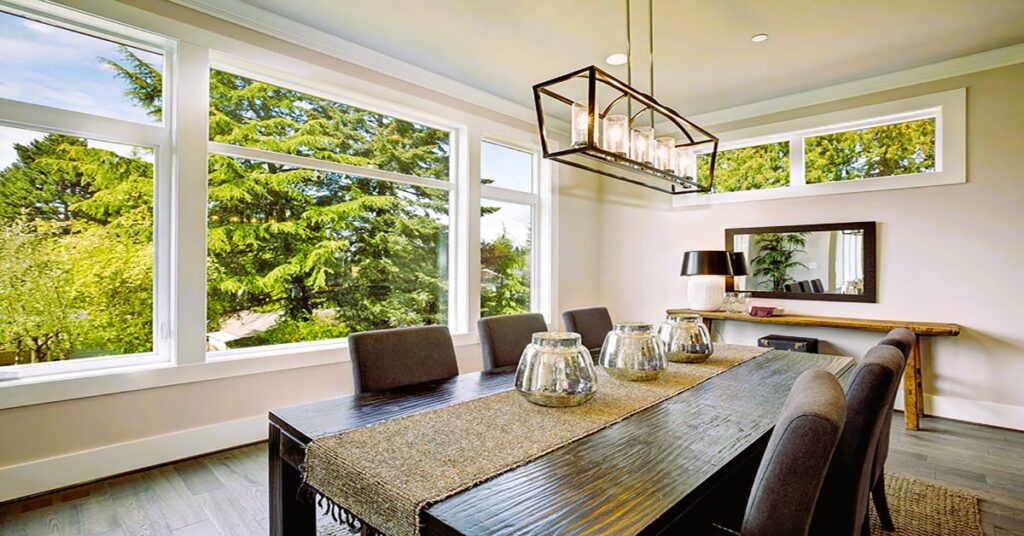When it comes to selecting windows for your Canadian home, it’s essential to consider the weather conditions that these windows will face. Canada is known for its diverse climate, ranging from harsh winters to hot summers, and everything in between. To ensure the longevity, energy efficiency, and overall performance of your windows, choosing the right window frame material is crucial. In this article, we will explore different window frame materials suitable for Canadian weather conditions, allowing you to make an informed decision for your home.
- Vinyl Window Frames
Vinyl window frames have become increasingly popular among Canadian homeowners, and for good reason. Vinyl is a durable, low-maintenance material that can withstand the extreme temperatures experienced in different regions of Canada. Vinyl frames are resistant to moisture, which is particularly important in areas with heavy snowfall or high humidity. They are also excellent insulators, helping to keep your home warm in the winter and cool in the summer. Additionally, vinyl frames are highly customizable, available in various colors and styles to complement your home’s aesthetics.
- Fiberglass Window Frames
Fiberglass window frames are another excellent option for Canadian weather. These frames are known for their exceptional durability and resistance to extreme temperatures. Fiberglass is a non-conductive material, meaning it doesn’t expand or contract with changes in temperature like some other materials do. This stability helps prevent air leakage and ensures a tight seal, enhancing energy efficiency. Fiberglass frames are also resistant to warping, cracking, and rot, making them an ideal choice for regions with severe weather conditions.
- Aluminum Window Frames
Aluminum window frames are known for their strength and durability. They can withstand heavy winds, storms, and other challenging weather conditions. Aluminum frames are lightweight yet structurally sound, providing stability and security to your windows. However, aluminum is a highly conductive material, which means it can transfer heat and cold into your home if not properly insulated. To mitigate this, look for aluminum frames with thermal breaks or insulating strips to improve energy efficiency.
- Wood Window Frames
Wood window frames offer a classic, timeless look that many homeowners appreciate. Wood is a natural insulator, providing excellent thermal performance. However, wood frames require more maintenance compared to other materials. They are susceptible to moisture damage, warping, and rotting if not properly protected. In Canadian climates with significant temperature fluctuations and moisture exposure, it’s essential to choose high-quality wood frames that are treated, sealed, and regularly maintained. Proper sealing and regular painting or staining can help protect the wood and extend its lifespan.
- Composite Window Frames
Composite window frames combine the best qualities of different materials, offering a balance of durability, energy efficiency, and low maintenance. These frames are typically made from a combination of wood fibers and plastic or resin materials. Composite frames are resistant to rot, moisture, and insect damage, making them suitable for Canadian weather conditions. They also provide good thermal insulation and stability. Composite frames can mimic the look of traditional wood frames, providing a natural and warm aesthetic to your home. Like the article? Read also about life hacks for cleaning windows.

- Consider Energy Efficiency
Apart from the frame material, it’s important to consider the energy efficiency of the entire window system. Look for windows with double or triple glazing, low-emissivity (low-E) coatings, and gas fills (such as argon or krypton) between the glass panes. These features enhance insulation and reduce heat transfer, improving energy efficiency and reducing heating and cooling costs.
- Consult with a Professional
Choosing the right window frame materials for Canadian weather can be overwhelming. It’s always a good idea to consult with a professional window installer or contractor who can assess your specific needs and recommend the most suitable options for your home. They can provide valuable insights, consider local climate factors, and ensure proper installation for optimal performance and longevity.
In conclusion, selecting the right window frame materials is essential for withstanding the diverse weather conditions in Canada. Consider factors such as durability, energy efficiency, maintenance requirements, and aesthetic appeal when making your decision. Whether you opt for vinyl, fiberglass, aluminum, wood, or composite frames, prioritize quality and ensure proper installation to maximize the benefits of your windows. By investing in the right window frames, you can create a comfortable, energy-efficient, and visually appealing living space that can withstand the challenges of Canadian weather for years to come.

